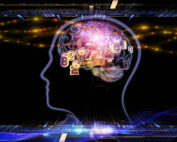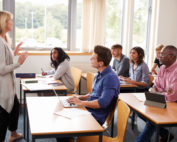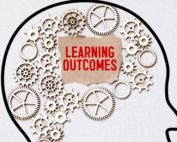What is Learnership?
Learnership combines the words and meanings of the words “learner” and “ownership.” Together, they embody the elevation of learning to learner ownership. Someone who has true learnership is one who self-directs, self-evaluates, self-reflects, and self-controls their own learning. We are posting new articles every week so make it your routine to check-in frequently. Or, subscribe to The Learnership Review and receive monthly emails so you never miss a thing.
How to Plan Sessions that Engage Adults in Learning
In this article you will learn…
- Active engagement respects adults, gives them significant voice and choice in shaping their own learning, promotes deep understanding of new learning, and increases motivation to implement it.
- The purpose of a focused Learning Model for Adults is to support a presenter to reflect on their own decision-making as they decide what they and their participants need to know for each session, thereby increasing adult learners’ engagement and motivation.
- Presenters utilizing a Learning Model for Adults will be supporting their participants in knowing what they are learning, why they are learning it, how they will learn it, how they will show they have learned it, and how they will continue to use what they learned.
How to Build Engaging Learning Opportunities for Adults that Benefit Your Students
In this article you will learn…
- All adults in a student’s community must actively engage in professional learning opportunities that ultimately will benefit the student.
- Presenters need to plan professional learning sessions using a focused Learning Model for Adults.
- Presenters utilizing a Learning Model for Adults will be supporting their participants in knowing what they are learning, why they are learning it, how they will learn it, how they will show they have learned it, and how they will continue to use what they learned.
Why Teacher Reflection Should Be Collaborative
In this article you will learn…
- The power of reflection is amplified when meaningful conversations are part of the process because when teachers have the opportunity to talk about their lessons with a colleague, insights are gained, skills are refined, and students benefit.
- A question-driven reflection is a method of discourse that allows a teacher to own the reflection process by explaining, clarifying, and reflecting on the decisions they made in planning and delivering the lesson.
- A set of reflection questions that collaborative colleagues can utilize to begin to reflect on and understand the decisions a teacher made at the lesson level.
How Teachers Can Use Reflection to Elevate Achievement
In this article you will learn…
- Teachers who make it a routine to reflect on their lessons, in turn, have a positive impact on teaching and learning for their students
- Reflecting on lessons is the metacognitive side of instruction, and it supports teachers in becoming stronger decision-makers.
- How to reflect on a lesson using Elevated Achievement’s Learning Model.
Power Planning: How to Amp Up Your Lessons with Effective Instructional Strategies
In this article you will learn…
- The key to an effective lesson is selecting an instructional strategy based on the skill to be learned and the students learning the skill.
- How to use focused planning questions to ensure that each and every one of your students is supported by opportunities for meaningful engagement using effective instructional strategies.
- How other teachers are selecting and using instructional strategies based on the learning outcome and their students’ needs.
Why Measurable and Achievable Learning Outcomes Are Imperative to Each and Every Lesson
In this article you will learn…
- When teachers communicate with their students what skill they are learning and how they will show or demonstrate they have learned it, it increases students’ probability of learning.
- A measurable and achievable learning outcome has two key components: 1) The “what skill” that identifies what specific skill or content the students will be learning 2) The “how show” that identifies what students will need to demonstrate or produce to show they have learned.
- It is not enough that the teachers know the “what” and the “how show.” They must share the learning outcome with their students so that the students know and can articulate them.
What are people saying about Elevated Achievement Group?
Relevant and valuable information that we can put into practice.
Can you imagine building an environment full of motivated, engaged, and eager students who own their learning?
We can.









